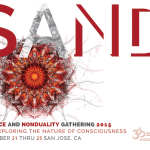“Women’s religious agency: negotiating secularism and multiculturalism in everyday life” — Uppsala University, May 2015
Invitation and call for papers: Women’s religious agency: negotiating secularism and multiculturalism in everyday life
Department of Theology, Uppsala University, Uppsala, Sweden, May 7-8, 2015.
This workshop is the first of a series of international workshops on the theme “Is secularism bad for women? Women, Religion and Multiculturalism in contemporary Europe” focusing on the relation between the role of religion in women’s lives and gender equality.
This is an important question to debate, given the increased visibility of religion in the globalized world of the 21st century. While some scholars and political actors argue that a form of political secularism is the best way to ensure gender equality, others consider secularism a bad political arrangement for religious people, because it excludes them from the political and public sphere. Taking forward discussions initiated by Susan Moller Okin’s controversial 1997 essay ‘Is multiculturalism bad for women?’ and continued recently in works of scholars including Saba Mahmood, Joan Scott, Nilüfer Göle, Nadje Al-Ali, Linell Cady and Tracy Fessenden, these workshops address the following questions: how can European societies secure religious women’s freedom and flourishing? What political arrangements offer the most to those who are religious and female? Is religion – at least some forms of it – an impossible impediment, something that must be destroyed in order for women to be free? Or can religion be a positive force in women’s lives, something that enhances their wellbeing and aids social justice?
This workshop will approach these issues focusing on the individual or everyday level; the second workshop at Coventry University, UK, will address the group level, and the third at University of Coimbra, Lisbon, will address the public and political context. In the Uppsala workshop, we wish to connect research on the growing fields of ‘lived’ or ‘everyday religion’ with research on the impact of debates on secularism and multiculturalism on women’s lives, rights and identity. In everyday life women perform religion in symbolic and material ways, for example through clothing, cooking and caring work. These practices link private and public spheres and identities, and are crucial to the process of transmitting and transforming religion and secularity – however, they are sometimes overlooked or misinterpreted. This workshop will explore similarities and differences between different religious and social contexts in the dynamics between gender, religion, spirituality, non-religion and secularism. How do women’s everyday practices of religion challenge understandings of religion, agency and change in sociology of religion and in society? How can we find analytical tools to analyze complexities of power and agency in women’s performance of religion?
Confirmed keynote speakers will be Professor Elina Vuola (University of Helsinki), and assistant professor Pia Karlsson Minganti (Stockholm University).
We invite papers that discuss these questions. Abstracts should be sent by 9th March. Abstracts should be written in English and not exceed 400 words. Notification of acceptance will be given before April 7th. Please send abstracts to: linnea.jensdotter@gmail.com.
Practical information:
The workshop will run from 4 pm on the 7th of May to 5 pm on the 8th of May. Papers will be presented in thematic, parallel sessions. Participation fee is 30 euros per participant or 15 euros for PhD, post-doc or civil society organizations, which includes refreshments. The workshop is funded by the International Society for the Sociology of Religion and organized by Prof Mia Lӧvheim (Uppsala University), Dr Terhi Utriainen (University of Helsinki), Dr Kristin Aune (Coventry University), Dr Alberta Giorgi (Centre of Social Studies, University of Coimbra; GRASSROOTSMOBILISE, Eliamep) & Dr Teresa Toldy (Fernando Pessoa University, Porto; Centre of Social Studies, University of Coimbra). The workshop in arranged in cooperation with the research Programme The Impact of Religion: challenges for society, law and democracy, a Centre of Excellence at Uppsala University 2008-2018.


